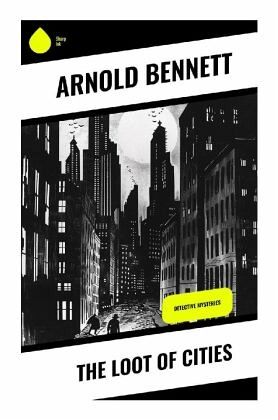
The Loot of Cities
Detective Mysteries
Versandkostenfrei!
Versandfertig in 6-10 Tagen
10,30 €
inkl. MwSt.

PAYBACK Punkte
0 °P sammeln!
In 'The Loot of Cities,' Arnold Bennett delivers a masterful exploration of the social and economic dynamics at play in early 20th-century industrial Britain. The novel, characterized by its vivid realism and keen psychological insight, scrutinizes the relationship between wealth and morality through the lens of the emerging capitalist society. Bennett's prose is marked by sharp humor and a satirical tone, which effectively illuminate the stark disparity between the affluent elite and the struggling working class amid the backdrop of urbanization and war. The narrative weaves together the ambi...
In 'The Loot of Cities,' Arnold Bennett delivers a masterful exploration of the social and economic dynamics at play in early 20th-century industrial Britain. The novel, characterized by its vivid realism and keen psychological insight, scrutinizes the relationship between wealth and morality through the lens of the emerging capitalist society. Bennett's prose is marked by sharp humor and a satirical tone, which effectively illuminate the stark disparity between the affluent elite and the struggling working class amid the backdrop of urbanization and war. The narrative weaves together the ambitions and moral quandaries of its characters, reflecting the societal tensions of a rapidly changing world. Arnold Bennett, an influential figure in the literary landscape of the early 1900s, drew from his own experiences as a native of the industrial city of Stoke-on-Trent. His intimate familiarity with the struggles and aspirations of individuals in such environments profoundly informs this work. As a novelist, essayist, and playwright, Bennett champions the everyday life and seeks to expose the undercurrents of truth within the mundane matters of existence, presenting poignant commentary on social issues of his time. 'The Loot of Cities' is not just a tale of ambition and betrayal; it is a rich social commentary that invites readers to reflect on the ethical implications of wealth seeking in modern life. It is highly recommended for those interested in the intersections of class, morality, and the gritty realities of urban industrialization.











